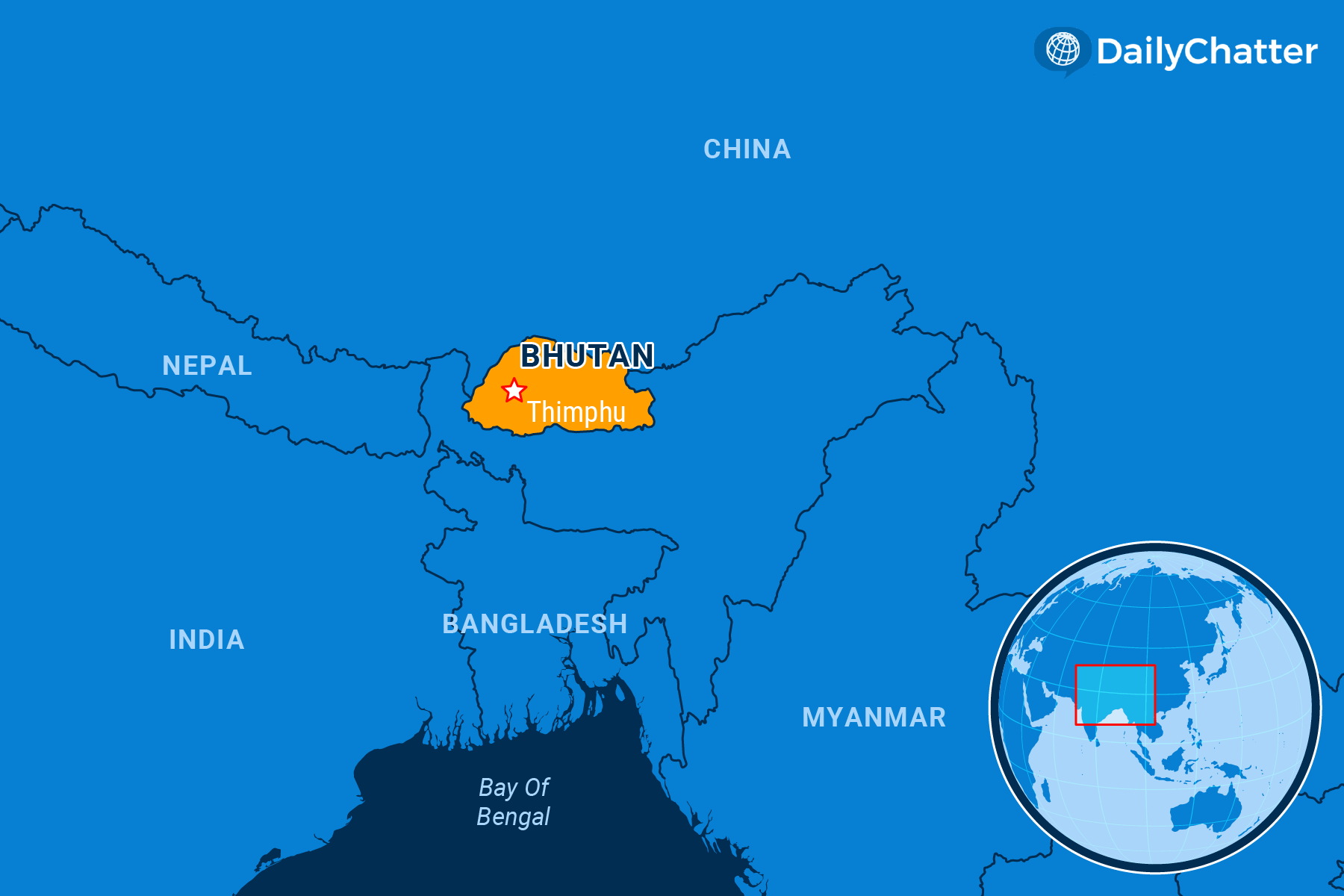
The World Today for January 19, 2024
NEED TO KNOW
Gross National Gloom
BHUTAN

In Bhutan’s recent elections – the fourth since 2008, when the Himalayan nation replaced its traditional monarchy with a parliamentary form of government – the opposition People’s Democratic Party received a mandate to solve the economic crisis that has been roiling the South Asian country.
That was a clear expression of unhappiness with the state of things in this small country sandwiched between India and China.
In the past five years, Bhutan’s anemic economy has grown by a mere 1.7 percent, reported the Associated Press. Unemployment is rampant. Young people, 29 percent of whom are jobless, are leaving for opportunities abroad. Around 15,000 Bhutanese sought visas to move to Australia in the year before July 2023, about 2 percent of the country’s population, added Barron’s.
The country’s famous “Gross National Happiness” index, a tool that, as El País detailed, Bhutanese officials established to provide a better measure of health and prosperity than traditional measures such as gross domestic product, often prioritizes social welfare policies over growth. But this election showed how many Bhutanese might want growth over state-conceived notions of contentment, contended Al Jazeera.
On the campaign trail, People’s Democratic Party leader Tshering Tobgay, a former prime minister, blasted former Prime Minister Lotay Tshering for his inept response to the coronavirus pandemic and vowed to enact a $180 million spending plan to garner foreign investment and tourism revenues, Nikkei Asia wrote.
Still, Bhutan can be expensive for most tourists: It requires a visa with a daily fee of $100 to promote sustainable development, plus expenses to ensure its industry grows in a “high value, low volume” manner.
Meanwhile, Tobgay will also take over the development of a new green city in Gelephu, a small town on the Indian border. Initiated late last year by Bhutan’s King Jigme Khesar Namgyel Wangchuck and supported with seed money by American billionaire Peter Thiel, who is likely no longer involved in the deal, Forbes reported, the new city would be founded on sustainable ecological principles and hopefully draw tech types to the country to start businesses.
Internationally, relations with India and China are the major issues facing Bhutan. The country of 800,000 people has close economic and strategic ties to India, whose leaders orchestrated the country’s foreign policy for years.
Technically, Bhutan today has no formal relations with China, explained Reuters. Instead, as the Japan Times discussed, Bhutan and China inked a “cooperation agreement” in October as part of their talks over disputed borders on Bhutan’s northern frontier. India observed the talks surrounding this agreement closely. If China secures land from Bhutan, Indian leaders would certainly balk.
Indian broadcaster NDTV cited satellite images that suggested that China was building illegal settlements on Bhutanese land to force its claims. Some of this land even belongs to Bhutan’s royal family.
Today, Bhutan’s voters want economic opportunities. Traditionally, small countries wedged between enormous neighbors can balance one against the other to gain those opportunities. The pressure, says El País, will be on Tobgay to deliver while keeping the kingdom safe and whole – and happy.
To read the full edition and support independent journalism, join our community of informed readers and subscribe today!
Not already a subscriber?
If you would like to receive DailyChatter directly to your inbox each morning, subscribe below with a free two-week trial.
Support journalism that’s independent, non-partisan, and fair.
If you are a student or faculty with a valid school email, you can sign up for a FREE student subscription or faculty subscription.
Questions? Write to us at [email protected].
